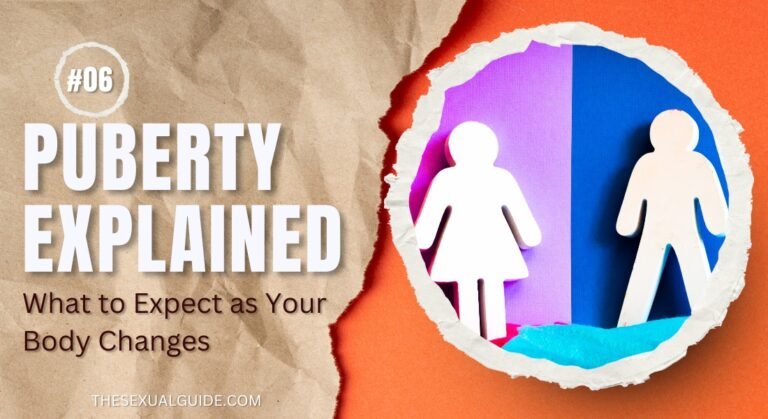Pregnancy is a transformative period filled with joy, anticipation, and a fair share of questions.
Among these are concerns about sexual activity during pregnancy.
Misinformation can lead to unnecessary anxiety, so it’s essential to separate myths from facts.
This article aims to debunk common misconceptions about sex during pregnancy, providing evidence-based insights to help expectant couples be guided in their intimate aspect of relationship.
Myth 1: Sex During Pregnancy Can Harm the Baby
Fact:
For most pregnancies, sexual intercourse is safe and does not harm the baby.
The fetus is well-protected by the amniotic sac, the strong muscles of the uterus, and a mucus plug that seals the cervix, safeguarding against infections.
A penis or penetrative sex toy cannot reach the baby, and the baby is unaware of sexual activity.
Myth 2: Sexual Activity Can Trigger Miscarriage or Preterm Labor
Fact:
In a healthy pregnancy, engaging in sex does not increase the risk of miscarriage or preterm labor.
Orgasms can cause uterine contractions known as Braxton Hicks contractions, which are typically mild and temporary.
These are normal and not a cause for concern.
Myth 3: Pregnant Individuals Lose Interest in Sex
Fact:
Sexual desire during pregnancy varies among individuals.
Some may experience a heightened libido due to increased blood flow and hormonal changes, while others might notice a decrease because of factors like nausea, fatigue, or body image concerns.
Open communication with your partner about these changes is crucial.
Myth 4: Certain Sexual Positions Should Be Avoided
Fact:
Comfort is key when it comes to sexual positions during pregnancy.
As the pregnancy progresses, some positions may become uncomfortable.
Experimenting to find what works best is encouraged, and most positions are safe as long as they are comfortable for both partners.
Myth 5: Orgasms Can Harm the Baby
Fact:
Orgasms during pregnancy are generally safe and do not harm the baby.
While they may cause mild uterine contractions, these are typically harmless.
However, if you experience any unusual pain or bleeding, it’s important to consult your healthcare provider.
When to Exercise Caution
While sex is safe for most couples during pregnancy, certain conditions may require caution:
- Placenta Previa: A condition where the placenta covers the cervix.
- History of Preterm Labor: Previous early labor may necessitate precautions.
- Unexplained Vaginal Bleeding: Any unexplained bleeding should be evaluated.
- Ruptured Membranes: If your water has broken, abstaining from sex is advised to prevent infection.
Always consult with your healthcare provider to determine what’s best for your specific situation.
Benefits of Sexual Activity During Pregnancy
Engaging in sex during pregnancy can offer several benefits:
- Enhanced Intimacy: Maintaining a sexual connection can strengthen the emotional bond between partners.
- Stress Relief: Sexual activity can release endorphins, promoting relaxation and well-being.
- Improved Sleep: The physical exertion can lead to better sleep quality.
- Increased Blood Flow: Heightened circulation can enhance sexual pleasure and satisfaction.
It’s important to note that individual experiences may vary, and comfort levels should always guide sexual activity.
Communicating with Your Partner
Open dialogue about sexual desires, concerns, and comfort levels is essential during pregnancy.
Discussing any physical or emotional changes can help both partners adjust and maintain intimacy.
Remember, it’s normal for sexual desire to fluctuate during this time.
Conclusion
Understanding the facts about sex during pregnancy can alleviate unnecessary fears and help couples maintain a healthy intimate relationship.
Always consult with your healthcare provider regarding any concerns, and prioritize open communication with your partner to navigate this journey together.
Want to learn more? Visit LibidoDepot for trusted solutions and resources to support your intimate health.
FAQs: Sex and Pregnancy: Myths and Facts
1. Is it safe to have sex during pregnancy?
Yes, in most healthy pregnancies, sex is completely safe up until your water breaks. However, it’s always best to consult your healthcare provider, especially if there are any complications or risks like placenta previa or preterm labor.
2. Can sex harm the baby?
No, the baby is well protected by the amniotic sac and the strong muscles of the uterus. A mucus plug also helps seal the cervix and prevent infection, making it highly unlikely for sex to harm the baby.
3. Is it true that sex during pregnancy can induce labor?
This is partly a myth. While semen contains prostaglandins and orgasms may cause uterine contractions, there's limited evidence that sex can actually induce labor unless the body is already ready to go into labor.
4. Can sexual desire change during pregnancy?
Yes, libido can fluctuate due to hormonal changes, physical discomfort, fatigue, or emotional shifts. Some women experience increased desire, while others may feel less interested in sex at different stages of pregnancy.
References
- Myths About Having Sex While Pregnant, Debunked
- Pregnancy Myths Cleared Up
- Sexual Activity During Pregnancy
- Sexual Myths During Pregnancy: A Comparative Study
- Birth Control: Myths About Sex and Pregnancy
- 10 Misconceptions About Sex and Pregnancy






